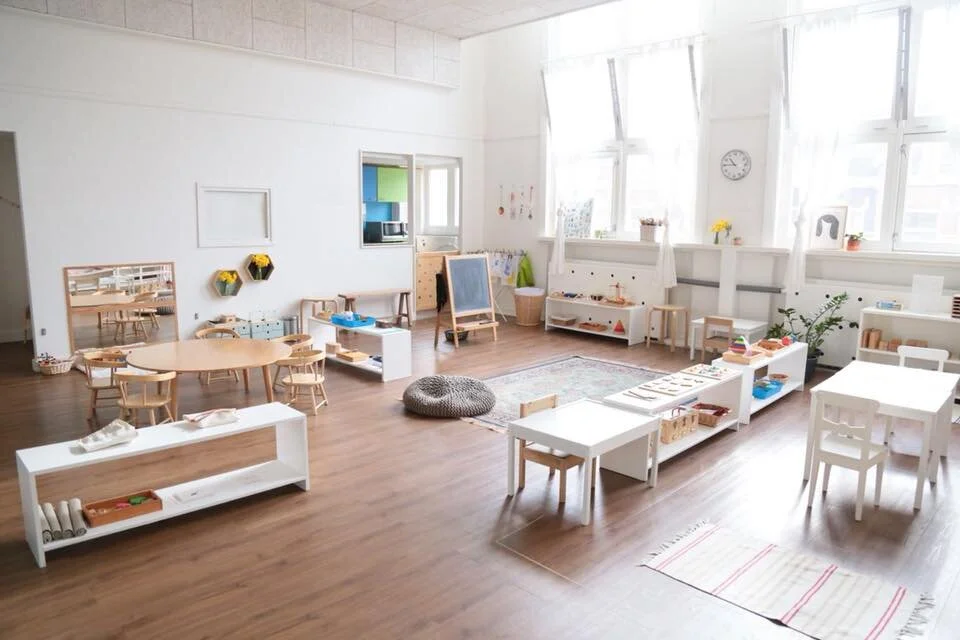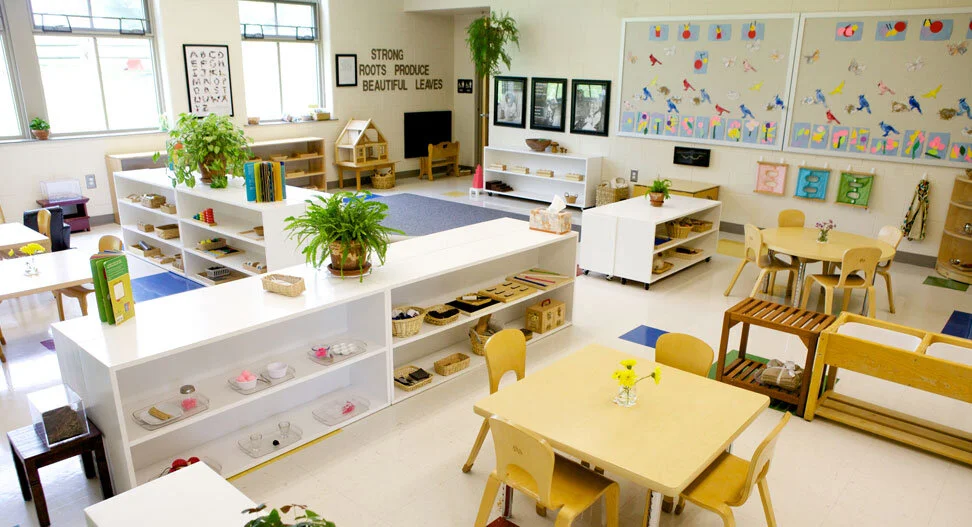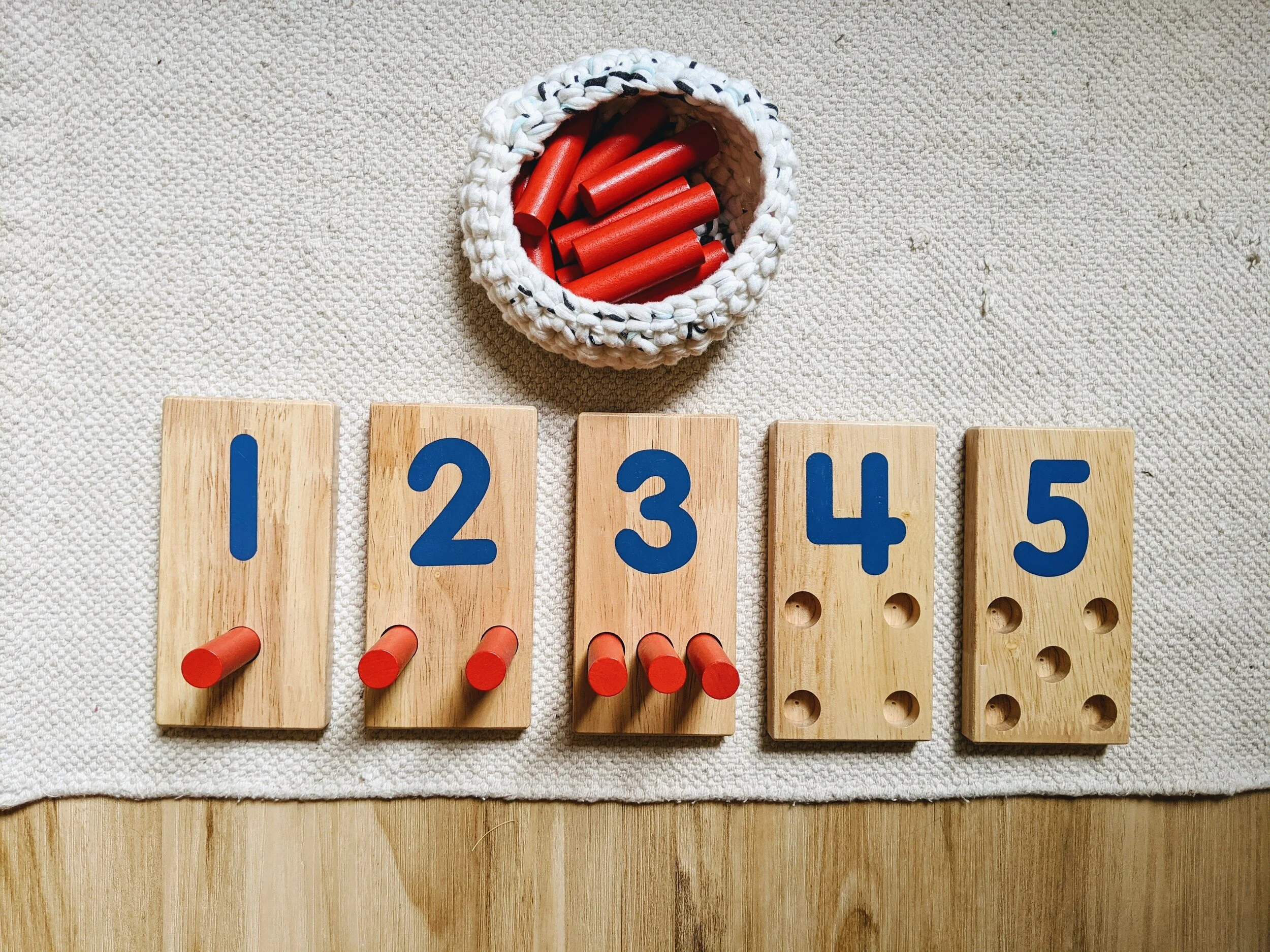Choosing a Montessori School
Montessori in Real Life
I get asked about this a lot, and understandably so. Choosing the “right” Montessori school for your toddler or preschooler can be a real challenge! “Montessori” isn’t trademarked, so anyone can use the name in their school title, and thousands of schools do. Montessori in the name alone does not mean it is a Montessori school in the traditional sense. That may not matter to you, but if you’re looking for a more authentic Montessori experience, it’s important to know.
Although you can’t choose a school based on the name alone, there are various other Montessori trademarks and qualifications you can look for. There is of course no one size fits all, but in general, here are the attributes or factors that I look for when choosing or recommending a Montessori toddler or primary program:
Parents’ Instincts - This is the most important when it comes to childcare in general. Do you get a good feel for the place and from the teacher(s)? Do you sense a positive energy, happy children, and peaceful adults? Is the school clean and orderly? Montessori or not, you need to feel comfortable and safe leaving your child here.
Teaching Style - How does the teacher talk to the children? Montessori teachers are typically wonderful at communicating with the age group they are working with. Do they get down to the child’s level and speak to them with respect? Do they pause and listen to what the child has to say? Conversely, I would avoid schools and teachers that use rewards or punishments, or label children good or bad.
Montessori Trained Teachers - If you want a true Montessori experience, this is very important. The two trainings I look for are AMI or AMS certifications. (I have my AMS infant-toddler certification). The AMI training is a bit more traditional/rigid while the AMS training is a little more flexible, but in my opinion, the similarities outweigh the differences. Other teachers are trained through NAMC, which I’ve also heard good things about but don’t know as well myself. Assistants are not typically Montessori certified. An added bonus is if the school itself is affiliated with AMI or AMS.
Mixed-Age Classroom - Montessori classrooms have a wider age range in each class than is typical in other schools. A toddler class usually goes from 18 months to 2.5 or 3 years. A primary class goes from 3 to 6 years (includes kindergarten year). One of the wonderful things about mixed-age classrooms is that the younger students learn from the older ones, and the older students learn to teach the younger ones. It is so valuable for young children to have this experience, as well as consistency that spans across years.
Layout - Take a look at the classroom, or a few, and note how the room is organized. Is it clean, orderly, and spatious? Montessori classrooms should be inviting for the child, with shelves of organized trays and baskets and plenty of floor space and tables to work at. The furniture should be made of wood, with plenty of natural materials on the shelves. Montessori classrooms are typically not as bright, loud, and overstimulating as many other kinds of preschools.
Self-directed Play - If you are able, observe in the prospective classroom. Watch how the children interact with the materials, each other, and the teachers. Children in a Montessori classroom should be allowed to choose their own work, focus on it, and seek help when needed. Other children might be playing with friends or working alongside one another. Teachers come over to children one-by-one rather than talking over them. There should be a fairly long work cycle for self-directed play, in addition to time outdoors and time together for songs and meals.
Teacher Turnover Rate - Not specific to Montessori, but I always like to look at how long teachers have worked at the school. It’s normal and common for there to be some turnover, and for teachers to leave (like I did after a baby!) but it may be a red flag if there is frequent teacher turnover at the school, especially mid-year. Children do best at schools that teachers enjoy teaching at, and turnover rate is a pretty good indication of that.
Note: most Montessori schools do not offer super part-time schedules. This is because children thrive on consistency and routine. However, they do exist and some schools offer flexibility. We were lucky to find a program where D can go a few mornings a week, as that works best for our family right now. She does well with part-time because we model our home in such a similar way, so routines aren’t constantly changing between home and school. It can be really challening for toddlers who have different rules and routines at home to then have to “re-learn” the routine at school each week for the two days they attend. It can also be difficult for a Montessori program to afford such part-time options. I hope that helps you understand why Montessori schools often insist on 4-5 day programs, as well as the importance of consistency for small children. Good luck in your search, and feel free to reach out with questions.












